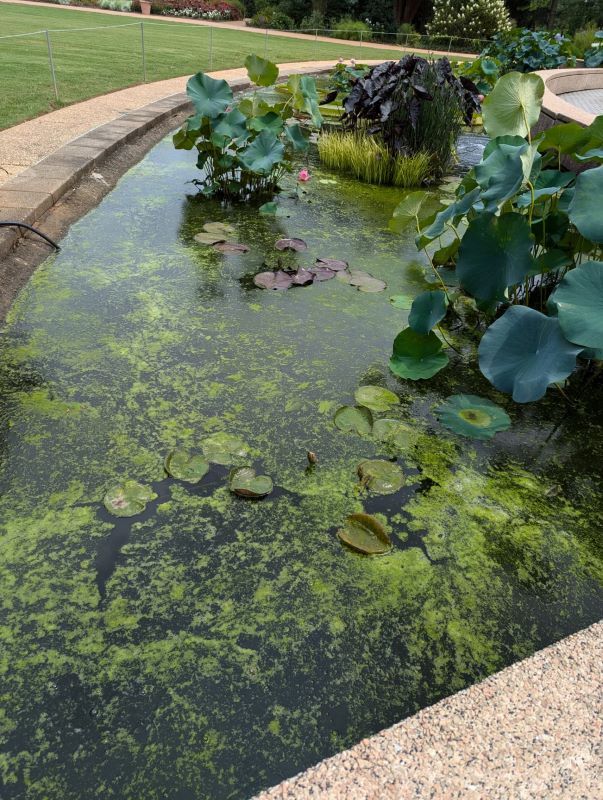One person recently took to the r/ponds subreddit for advice after a lawn company inadvertently created an environmental disaster in a pond at a botanical garden where they work.
"Lawn company fertilized the grass then blew the excess into the pond, creating an algae bloom (I think)," the poster wrote. "Any ideas what type of algae so I can properly treat the pond? Or should I just wait it out?"

The thread was full of various pond enthusiasts offering (sometimes conflicting) advice to the poster, who is in the metro Atlanta area.
"I wouldn't treat it, scoop out what you can with a net, it will sort itself out," wrote one commenter. "Maybe a few partial water changes if you like, but manual removal of the algae as much as possible would be the first step, it looks to be more of a string algae rather than soup so that's on your side. You know where the nutrients came from, you just need to get rid of the nutrients ... to get back to square one, and that includes the biomass of the algae itself."
Other commenters were more focused on the mistakes made by the lawn company.
"I'm a foreman at a lawn company, what they did is a fireable offense in my book, this is pounded into our guys heads from day one," wrote one. "If I were the OP I would be in contact with the company for them to correct the issue. Whoever is in charge of these guys is at fault. A lot of people don't even realize how much damage fertilizer can cause in a pond."
The entire episode is a good reminder of some of the downsides that come with grass lawns, which discourage biodiversity and often require costly maintenance that comes with unintended negative side effects (as well as a massive amount of water).
As the poster noted in a comment, if it were up to them, the botanical garden wouldn't have a lawn that needs to be mowed in the first place.
Many environmentally-conscious homeowners are also switching away from grass lawns to lawns that involve more native plants and flowers. These types of lawns — in addition to being more interesting and often more aesthetically pleasing — require much less maintenance, and the plants are all already adapted to live in harmony with one another. They also support local pollinators, boosting the entire ecosystem.
Join our free newsletter for easy tips to save more and waste less, and don't miss this cool list of easy ways to help yourself while helping the planet.









